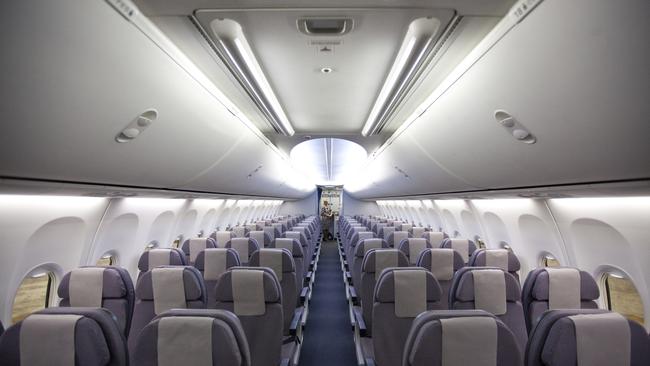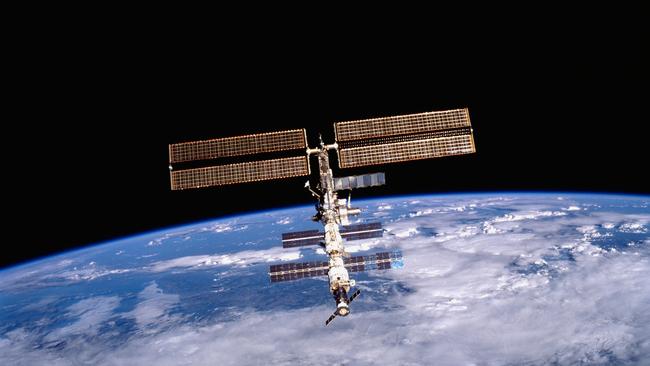COVID battle heads into space in UQ, Boeing ISS project
COVID-killing technology developed in Australia is to be tested in outer space.
COVID-killing technology developed by the University of Queensland is being tested in outer space.
Working with Boeing, the university has spent the last few years developing an antimicrobial surface coating to fight the spread of bacteria and viruses, including the coronavirus responsible for COVID-19.
Astronauts on the International Space Station will test its effectiveness in coming months by repeatedly touching objects from an aircraft to which the coating is applied, as well as those without.
Later this year, the objects including a seatbelt and buckle, arm rest and tray table, will be sent back to Earth for analysis to measure the effectiveness of the coating in a space environment.
University of Queensland Professor Michael Monteiro said the primary purpose of the antimicrobial coating was to help protect space missions.
“However, after the current pandemic struck, we modified the coating’s formula so it could also target the COVID-19 virus if it is present on a surface on Earth,” Prof Monteiro said.
“We look forward to continuing our testing regimen and working to gain regulatory approvals.”

Boeing’s chief aerospace safety officer Mike Delaney said the joint research project was part of the company’s “confident travel initiative”.
He said an antimicrobial surface coating in a spacecraft could help ensure the health of the crew and protect the spacecraft’s systems from bacteria – and ultimately may help prevent interplanetary contamination from Earth-borne or another planet’s microbes.
“While testing continues on orbit and on Earth, we’re encouraged by the preliminary results of the antimicrobial chemical compound,” said Mr Delaney.
“There is the potential for broadbased applicability for a surface coating like this when used in conjunction with other measures to prevent disease transmission.”
Boeing has provided around the clock engineering support for the International Space Station since 1993, and has collaborated with UQ on joint research and development projects since 2003.

To enhance the partnership Boeing research and technology engineers relocated to a purpose-built facility at the university in 2017, in the engineering building.
Professor Monteiro’s team is based at UQ’s Australian Institute of Bioengineering and Nanotechnology, which employs over 400 scientists working across a wide range of disciplines.
Antimicrobial coatings are among a range of weapons aircraft manufacturers expect to use in coming years to increase the safety of passengers, by further reducing the risk of viral transmission via cabin surfaces.
Ultraviolet light is also being considered to complement existing safeguards such as medical grade air filters.




To join the conversation, please log in. Don't have an account? Register
Join the conversation, you are commenting as Logout